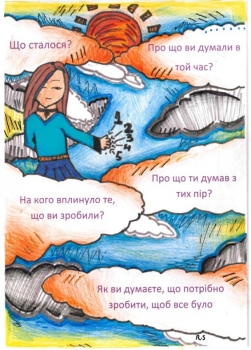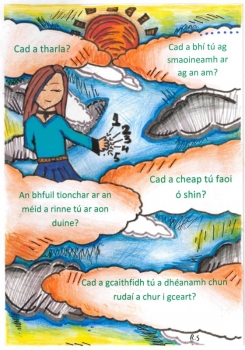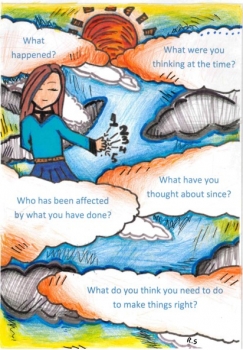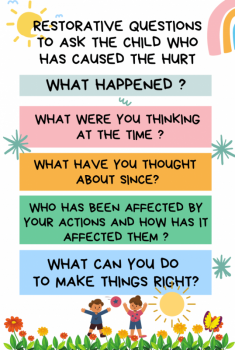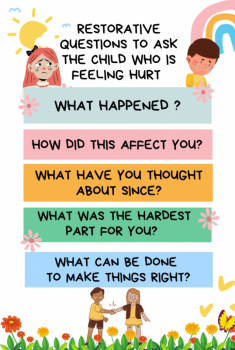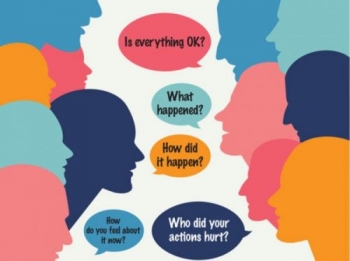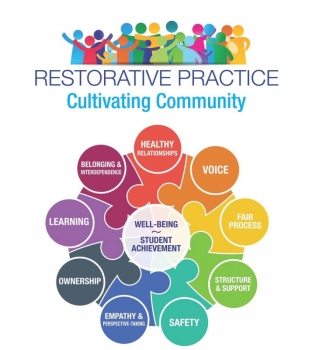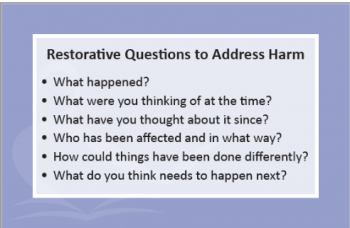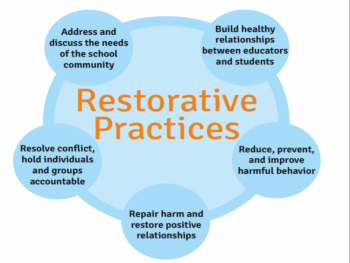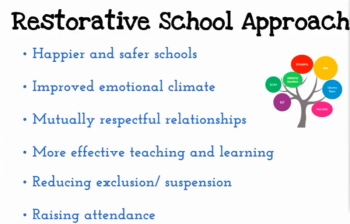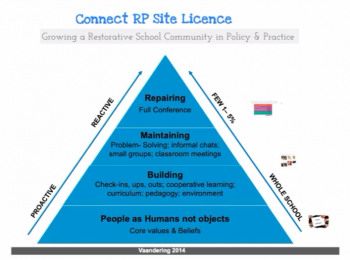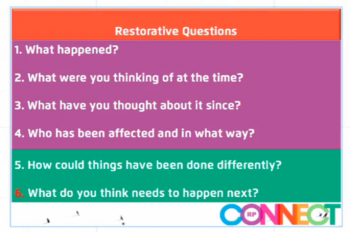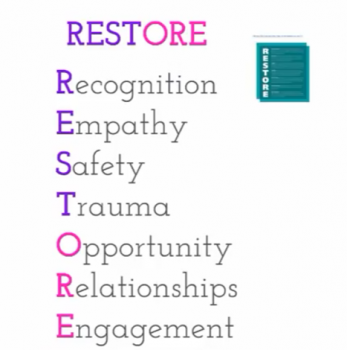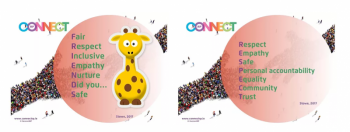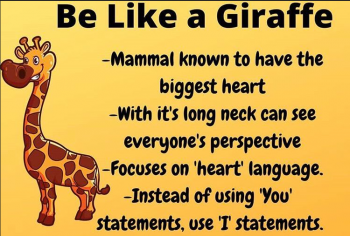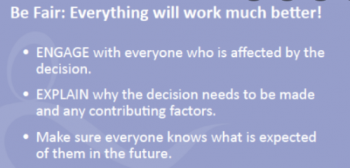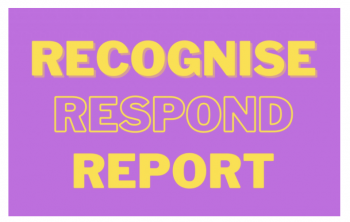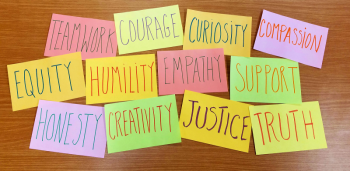Restorative Practice
Restorative Practice
What is Restorative Practice (R.P)?
Restorative Practice (RP) is both a philosophy and a set of skills rooted in respect for human beings and aims to build positive relationships between people. R.P. is centred on the understanding that relationships can be restored when they have been harmed by conflict or wrongdoing. It focuses on separating the behaviour from the person and appropriate responses to repair harm where necessary.
In Scoil Cholmáin, we consciously work at developing and maintaining good relationships. R.P helps us to sustain strong and happy communities by actively developing good relationships, by preventing conflict and by resolving conflict in a healthy manner when it does arise.
Restorative approaches are underpinned by the values of respect, equity, interconnectedness, understanding, empathy, belonging and fair process.
Restorative Questions:
- What happened?
- What were you thinking about at the time?
- What have you thought about since?
- Who has been affected by what you have done?
- What do you think you need to do to make things right?
RP questions are used to resolve conflict, with the aim of restoring relationships and repairing the harm caused. The image of the giraffe is often used because it is the animal with the largest heart (to emphasise care) and the longest neck (to see all perspectives).
Restorative Approaches
Restorative practices include a set of proactive approaches to build community and connection and a set of responses to challenging behaviour where harm has been caused. These approaches range from the informal and proactive to more formal responses:
Restorative Circles: As part of our approach, circles are regularly used in classes. Circles are a pro-active method of encouraging the development of emotional literacy and building community within the school. They give each child the opportunity to discuss and share their feelings in a trusting environment. A circle helps children to formulate what they want to say, and it lets them experience and empathise with other people’s problems or feelings, by developing their speaking and listening skills. Circles can be used for:
- Check-ins/outs
- Relationship-building
- Problem-solving
- Academic content
- Feedback
- Planning
- Discussion
Circles help the teacher to find out each child’s understanding or experience of an issue, and will also help the teacher to educate the children in a range of ways to cope with these problems should they arise in the future.
Restorative Conversations: When minor conflict or challenging behaviour has occurred, conversations take place with one or more children to examine who has been affected and how to address the harm that has been caused. It is important to address an issue as early as possible to prevent a situation/misunderstanding from escalating.
Restorative Meetings: Circles that take place with two or more people to respond to situations of more significant conflict/harm. Through using the RP questions, children are encouraged to:
- Examine who has been affected
- Address the harm that has been caused and
- Agree on solutions to make amends (1.Past 2.Present 3.Future)
Restorative Conferences: These are more formal restorative circles and are designed to support those affected by situations of conflict/harm to acknowledge responsibility, ensure accountability and agree on specific solutions to repair the harm that has been caused. As in Restorative Meetings, the RP questions are used in the Restorative Conference process to guide the solution-focussed intervention.
We encourage the children to take responsibility and ownership for their actions and expect them to take an active role in developing positive relations with their peers and in resolving conflict should it arise.
In order for Restorative Practice to work, it needs to be a ‘fair process’.
Fair process is an approach which includes:
- Engagement: Involving individuals affected by decisions where appropriate.
- Explanation:Clarifying how decisions are reached and why. Explaining any contributing factors.
- Expectation Clarity:Once a decision has been made fairly, those involved are expected to follow through with this agreement.
Relationships matter for effective teaching and learning – all the evidence on how the brain works suggests that the safer and happier a person is the more receptive they are to new ideas. Stress and fear shrinks the brain and reduces the ability to process new information. When young people have positive connections with their fellow students and their teachers, they feel safer. Relationships matter when things go wrong especially; learning how to accept responsibility, experiencing being held accountable for one’s own choices, and learning how to put things right with those who share the problem, give young people invaluable skills for life. Isolation and bullying can only thrive in environments where there is no care and connection, where there is no sense of community and belonging.
Restorative Practices are increasingly used in schools, both primary and secondary, as a core part of teacher-pupil engagement, behaviour management and conflict resolution. There are numerous studies in schools, which demonstrate very positive outcomes resulting from the implementation of the approach.
Our Restorative Practice posters were designed by Rachel Sidley while she was in 6th class in our school. They are displayed in the yard in English, Gaeilge and Ukrainian.

